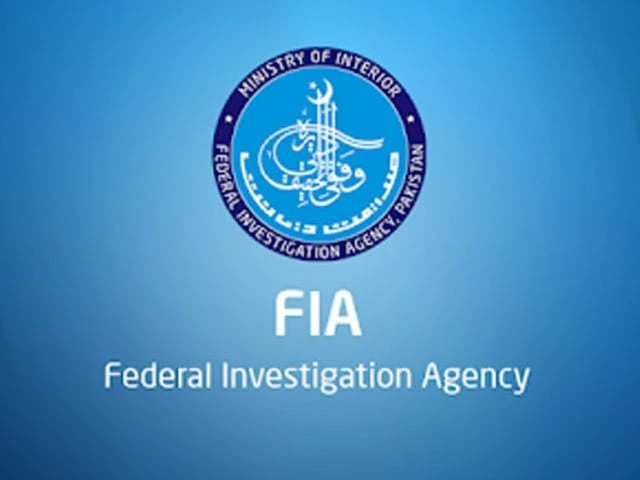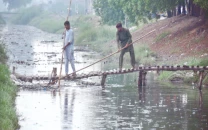Outcry over FIA case against environmentalist
Civil society urges PM, SC to act against what they call retaliatory persecution

Civil society leaders, environmentalists, and human rights advocates have strongly condemned the continued harassment of noted environmentalist Rina Saeed Khan Satti, former Chairperson of the Islamabad Wildlife Management Board (IWMB), during a webinar organised by Devcom-Pakistan on Saturday.
The session, titled "Harassed for Upholding Supreme Court Orders – A Case of MHNP Defenders," urged the Prime Minister and the Supreme Court of Pakistan to take immediate notice of what participants described as "retaliatory persecution" by powerful bureaucratic elements angered by Rina's enforcement of Supreme Court directives concerning the Margalla Hills National Park (MHNP).
The webinar was convened following the registration of a case against Rina Saeed Khan by the Federal Investigation Agency (FIA), which participants denounced as a vindictive attempt to punish her for upholding the law and protecting public land in the Margalla Hills. Speakers highlighted that she had acted strictly within the parameters of Supreme Court orders to remove illegal encroachments and restore the park's natural ecosystem.
"My actions have always been guided by a commitment to protect the environment and wildlife," Rina stated during the session. "I have never misused my authority or engaged in corruption. What is happening now is sheer retaliation for implementing the Court's orders and standing up to those exploiting public lands."
She went on to describe the personal and professional difficulties she has faced, including harassment, intimidation, and legal victimisation. "I was recently offered a position on a government wildlife board, which I considered an opportunity to continue my service to the environment," she said. "But instead of encouragement, I am being targeted for fulfilling my duty honestly. I will continue this fight - not only for myself but for every environmental defender who refuses to bow before vested interests."
Participants observed that the campaign against Rina represents part of a wider effort to undermine environmental law enforcement and weaken the autonomy of the IWMB, which has played a critical role in wildlife protection and conservation. They warned that such intimidation sets a dangerous precedent, emboldening corporate and bureaucratic interests to erode judicial authority and civic accountability.
Former Director General of the Pakistan Environmental Protection Agency, Asif Shuja Khan, emphasised that the enforcement of environmental laws and Supreme Court rulings demands strong political and administrative resolve. "The Prime Minister and key ministers must stand with those implementing the law, not with those breaking it," he said. "Harassing officials or citizens for protecting the environment is a national disgrace and must end immediately."
Speakers recalled that the Supreme Court had previously commended Rina's leadership in restoring the rule of law in the Margalla Hills and had censured officials acting against her. Despite these judicial observations, they noted, the persecution persists - prompting renewed calls for the Court to take suo motu notice to safeguard the integrity of environmental governance.
Munir Ahmed, Executive Director of Devcom-Pakistan, described the situation as "an alarming attempt to reverse the gains of environmental justice achieved under the Supreme Court's leadership." He urged the Prime Minister to intervene and the Supreme Court to act decisively against this "retaliatory campaign engineered by powerful bureaucrats."
The session concluded with a unanimous civil society resolution demanding the withdrawal of all baseless legal proceedings against Rina Saeed Khan, an impartial inquiry into those influencing the case, and stronger institutional protection for environmental defenders. Devcom-Pakistan also announced plans to mobilise public support through a national petition calling for an end to the misuse of authority against individuals serving the public interest.

























COMMENTS
Comments are moderated and generally will be posted if they are on-topic and not abusive.
For more information, please see our Comments FAQ